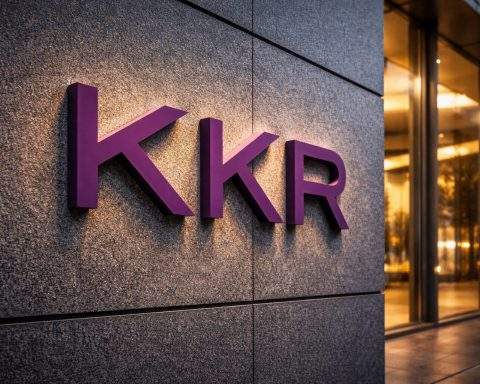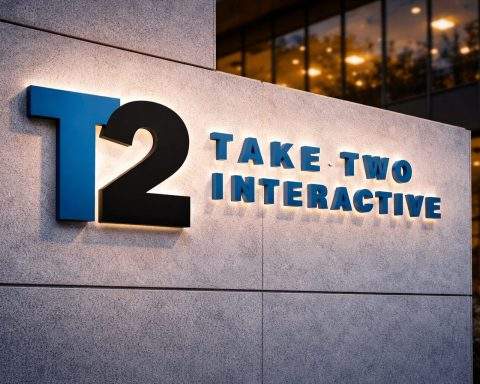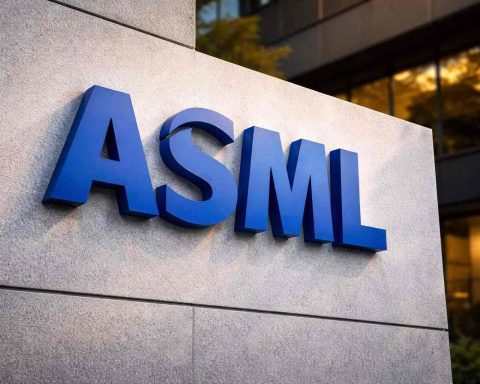Consumer Technology
- Google Pixel 10 Event Teased: Google has set August 20 for its next Made by Google launch event, where the flagship Pixel 10 phone lineup is expected to debut ahead of Apple’s fall releases ts2.tech. Leaks hint at new AI-driven features – e.g. an on-device “Camera Coach” giving real-time photography tips – and hardware upgrades like a telephoto lens on the standard Pixel 10 for the first time ts2.tech ts2.tech. Google even shared a teaser image showing a triple-lens camera, confirming rumors that the Pixel 10 will sport a more advanced camera system and run on a next-gen Tensor G5 chip for better performance ts2.tech 1 .
- Apple iPhone 17 Rumors Swirl: Meanwhile, anticipation is building for Apple’s upcoming iPhone 17 series due next month. Reports suggest the base iPhone 17 will finally get a 120 Hz high-refresh display (up from 60 Hz), a slightly larger 6.3-inch screen, and possibly a 24 MP front camera – features previously limited to Pro models ts2.tech ts2.tech. An “ultra-thin” iPhone 17 Air model is rumored to replace the current Plus variant, while the top-tier Pro Max could become a bit thicker to pack a bigger battery ts2.tech ts2.tech. Apple is expected to unveil the new iPhones on September 9 alongside updated Apple Watches and AirPods ts2.tech, with pricing speculated around $800 for the base model up to ~$1,250 for the Pro Max 2 .
- Kodak Denies Shutdown Rumors: Iconic camera maker Eastman Kodak came out to refute media reports that it was on the verge of going out of business. Following alarm over Kodak’s latest earnings report – which raised “going concern” flags about $477 million in debt due within a year – the company quickly issued a blunt statement that it has “no plans to cease operations, go out of business, or file for bankruptcy protection,” and is “confident it will repay, extend, or refinance its debt” on time techcrunch.com techcrunch.com. Kodak detailed plans to use an incoming $300 million cash infusion (from terminating a pension plan) to pay down a large chunk of its debt and refinance the rest techcrunch.com. Executives noted that rising nostalgia for retro tech like 35mm film and vintage cameras has given Kodak a modest boost recently, pushing back on what the company called “misleading” reports that overplayed its challenges 3 .
Enterprise IT & Software
- Pentagon Pauses $800 M in Software Projects: In a controversial move, the U.S. Navy and Air Force are reportedly canceling or freezing several nearly-completed software contracts worth over $800 million – prompting sharp criticism from lawmakers reuters.com. The reason given by some officials is a desire to reroute these projects to different platforms (allegedly favoring vendors like Salesforce and Palantir) for a “do-over” of the work reuters.com reuters.com. Democrats blasted the decision as potentially wasteful and politically motivated: “The Pentagon has yet to show that it had a good reason for halting these contracts in the last inning… If it can’t show its homework… this announcement… reeks of corruption,” Senator Tim Kaine said in a statement reuters.com. The Pentagon and military branches declined to comment on the pause, which comes just days after Palantir’s CEO reportedly mingled with lawmakers at a donor retreat reuters.com 4 .
- Data Centers Fight for Green Energy Rules: A coalition of major data center operators – including Google, Amazon, and Microsoft – is urging the U.S. Treasury to preserve existing clean energy tax credit rules that have incentivized massive investment in wind and solar power for cloud computing facilities reuters.com. The group (the Data Center Coalition) wrote to Treasury Secretary Scott Bessent warning that proposed stricter rules on how projects qualify for renewable energy credits “could slow development” of new power generation at a time of surging electricity demand from the digital economy reuters.com reuters.com. “Any regulatory friction that slows down deployment of new generation today directly impacts our ability to meet AI-era electricity demands tomorrow,” the coalition wrote in its letter, arguing that steady rules have enabled the industry to grow quickly and stay ahead of Chinese competition reuters.com reuters.com. (President Trump issued an executive order in July directing a review of these subsidy rules reuters.com, prompting the industry pushback.)
Telecommunications
- Ukraine’s Kyivstar Debuts on NYSE: Ukrainian telecom operator Kyivstar became the first Ukrainian company ever listed on a U.S. stock exchange, amid high-level peace talks aimed at ending the war in Ukraine reuters.com. Kyivstar’s shares began trading on the NYSE on Friday, but dipped over 9% in early trading reuters.com reuters.com. The listing – which coincided with a U.S.–Russia summit in Alaska – is being hailed as symbolic of Ukraine’s resilience and investor confidence in its telecom sector, even as the conflict continues. Kyivstar, majority-owned by NEQSOL Holding, said proceeds from the U.S. listing will help fund network expansion and wartime reconstruction of digital infrastructure.
- Vodafone Idea Narrows Loss & Names CEO: In India, Vodafone Idea reported a smaller-than-feared quarterly loss and announced a leadership change as it struggles to revive its fortunes. The debt-laden carrier’s loss for April–June was ₹66.1 billion (~$754 million) – slightly better than analyst estimates of ~₹70 billion reuters.com reuters.com. Average revenue per user rose 15% year-on-year after tariff hikes, though remains well behind rivals (₹177 vs. Airtel’s ₹250) reuters.com. Vodafone Idea also said COO Abhijit Kishore will take over as CEO on August 18, as outgoing chief Akshaya Moondra’s term ends reuters.com reuters.com. The company hopes new leadership and recent equity infusions will help it attract investors and roll out 5G, as it continues to lose subscribers to better-capitalized competitors.
Cybersecurity
- Accenture Makes $650 M Cybersecurity Buyout: Global IT consulting giant Accenture announced plans to acquire Australian cybersecurity firm CyberCX in what is reported to be a A$1 billion (~$650 million USD) deal reuters.com reuters.com. This marks Accenture’s largest-ever foray into the cyber sector, adding CyberCX’s 1,400 security specialists and SOC (security operations center) network across Australia, New Zealand, the UK and U.S. reuters.com reuters.com. CyberCX was formed in 2019 by consolidating 12 smaller firms and is led by veterans like former Optus executive John Paitaridis reuters.com. The hefty price tag underscores booming demand for cybersecurity services as businesses worldwide face increasingly sophisticated hacks and data breaches. Australia in particular suffered a “wave of devastating cyberattacks” in the past year – including a 2022 Optus breach exposing 10 million users’ data and a hack on insurer Medibank affecting another 10 million reuters.com. Accenture’s acquisition (from private equity owner BGH Capital) comes as companies and governments alike race to bolster their cyber defenses 5 .
Automotive Technology
- EV Shatters Range Record:General Motors announced that a 2026 Chevrolet Silverado EV work truck has driven 1,059.2 miles on a single charge, breaking the world EV range record (previously 749 miles) news.gm.com. In a closely supervised test on public roads in Michigan, GM engineers hyper-optimized driving conditions – maintaining a steady 20–25 mph, minimizing stops, overinflating tires, removing extra weight – to push the electric pickup past the 1,000-mile mark. Crucially, the truck was a stock model (493-mile EPA range) with no special modifications beyond efficiency tricks news.gm.com news.gm.com. “Getting this kind of range on a full charge doesn’t happen by accident,” said Kurt Kelty, GM’s VP of battery technology, crediting “deep integration across battery chemistry, drive unit efficiency, software and vehicle engineering” for the feat news.gm.com. While not practical for normal driving, the experiment yielded valuable data to combat consumer “range anxiety” and showcased the rapid advances in EV technology GM is bringing to market news.gm.com news.gm.com. The Silverado EV will launch next year, now armed with a Guinness-worthy headline and real-world insight to improve its range further.
Space Technology
- Chinese Startup’s Rocket Test Fails: A test flight of a methane-fueled rocket built by China’s private space company LandSpace ended in failure on Friday. The Zhuque-2E Y3 rocket lifted off from a commercial launch site in northwestern China but “experienced an anomaly” mid-flight, the company said, and did not reach orbit reuters.com reuters.com. LandSpace is a pioneer in methane-liquid oxygen rocketry – its Zhuque-2 made history in 2023 as the world’s first methane-fueled rocket to reach orbit, ahead of U.S. rivals like SpaceX and Blue Origin reuters.com. Methane propellant is seen as a cleaner, safer and potentially reusable alternative to traditional rocket fuels, drawing high interest in the space industry reuters.com. The failed launch is a setback for LandSpace’s ambitions, though it had successfully flown a variant of Zhuque-2 earlier in May reuters.com. The company said it is investigating the cause of the anomaly. Observers note that failures are not uncommon in early tests of new rocket architectures – and that data from this attempt will likely inform next steps as China’s commercial space sector rapidly evolves.
Semiconductors & Hardware
- Intel Surges on U.S. Stake Hopes: Shares of Intel jumped nearly 4% on Friday after a Bloomberg report suggested the U.S. government may take an equity stake in the struggling chipmaker reuters.com reuters.com. The news followed a meeting between Intel’s CEO (newly appointed Lip-Bu Tan) and President Trump earlier in the week, after Trump had publicly demanded the CEO’s resignation over “highly conflicted” ties to Chinese businesses reuters.com reuters.com. According to the report, the Trump administration is considering using funds from the 2022 CHIPS Act – which was designed to boost domestic semiconductor manufacturing – to buy a piece of Intel reuters.com reuters.com. Federal backing could give Intel more time and resources to turn around its loss-making foundry business, analysts say, but it won’t solve core competitive issues. “It could be a game-changer… but government support doesn’t fix the underlying competitiveness gap in advanced nodes,” noted Hargreaves Lansdown analyst Matt Britzman reuters.com reuters.com. Intel has fallen behind Asian rivals in chip technology and remains virtually absent from the booming AI processor market dominated by NVIDIA reuters.com. (The White House and Intel declined to comment on the stake speculation 6 .)
- Tariffs on Chips and Steel Coming: U.S. tech trade tensions are poised to escalate as President Donald Trump announced he will impose new tariffs on imported semiconductor chips (and steel) in the coming weeks reuters.com. Speaking aboard Air Force One on Friday, Trump said “I’ll be setting tariffs next week and the week after on steel and on, I would say, chips.” reuters.com He indicated the semiconductor tariffs will start at a lower rate to give companies time to “build” plants in the U.S., then ramp up to “very high” levels later on reuters.com reuters.com. “I’m going to have a rate that is lower at the beginning – that gives them a chance to come in and build – and very high after a certain period,” Trump explained of the phased approach reuters.com. The president has already upended trade norms with sweeping duties on imports from many countries. Earlier this year he hiked steel tariffs to 25%, with plans to double them to 50%, and he has even threatened a 100% tariff on foreign semiconductors unless manufacturers expand in America reuters.com reuters.com. The new chip tariffs, if enacted, could raise costs for consumer electronics and further strain U.S.–China tech relations, though firms that commit to U.S. production may get exemptions 7 .
- Chip Equipment Giant Faces Slowdown:Applied Materials, the leading U.S. maker of semiconductor fabrication equipment, saw its stock sink ~12–15% on Friday after issuing a weaker-than-expected sales forecast and warning of soft demand in China reuters.com reuters.com. On its earnings call, CEO Gary Dickerson cited “wide-ranging implications for the semiconductor industry” from the volatile policy environment – including U.S.–China trade restrictions – which have made Chinese demand for chipmaking tools increasingly uncertain reuters.com reuters.com. China accounts for 35% of Applied’s revenue reuters.com, and export curbs are weighing on new orders. The cautionary outlook from Applied (and similarly from Dutch rival ASML) dragged down shares of other chip-tool firms like KLA and Lam Research. Industry analysts emphasized that geopolitics, more than the usual silicon cycle, is clouding the horizon: “China volatility is significantly clouding visibility into core earnings potential both geopolitically and cyclically,” Deutsche Bank strategists wrote in a note reuters.com reuters.com. Still, JPMorgan analysts suggested the demand slowdown may be more cyclical than structural for now reuters.com reuters.com, as global chipmakers digest capacity added during the pandemic boom.
- Private Equity Targets Swiss Chip Firm: European semiconductor M&A is heating up – U-Blox Holding, a Swiss manufacturer of positioning chips and modules (used in car navigation, IoT devices, etc.), confirmed it is in takeover talks with U.S. private equity firm Advent International reuters.com reuters.com. The deal could value the publicly traded U-Blox at over 1 billion Swiss francs (~$1.13 billion), according to Bloomberg reuters.com reuters.com. News of the approach sent U-Blox’s stock soaring 19% to a three-year high on Friday reuters.com. The company, which went public in 2007, has recently improved its finances – it nearly halved its first-half operating loss versus last year and grew revenues 32% – making it an attractive buyout target reuters.com. U-Blox specializes in GPS/GNSS and wireless communication chips used in cars, drones, and industrial tech. While confirming the Advent negotiations, U-Blox cautioned that “whether a transaction will materialise is open at this stage” reuters.com, as no firm offer has been finalized yet. If Advent proceeds, the acquisition would add to a string of private-equity moves in the chip sector amid a push for consolidation and supply chain control.
Fintech & Crypto
- Fed Ends Crypto Oversight Program: The U.S. Federal Reserve announced it will scrap a specialized program for policing banks’ crypto and fintech activities, and fold that oversight into its standard supervision processes reuters.com reuters.com. The Fed’s “novel activities” supervision team was created in 2023 to intensely monitor how banks engage with cryptocurrency, blockchain, and other fintech innovations reuters.com. Now, two years later, the central bank says the dedicated program is no longer needed since regulators have “strengthened understanding” of these risks and how to manage them reuters.com. Going forward, crypto-related scrutiny will be integrated into the Fed’s routine bank exams and oversight framework. The move comes as federal regulators shift from an initially wary, exploratory approach toward treating digital assets more like other banking activities. (It also follows increased clarity on stablecoin rules and crypto accounting in recent months.) While some industry players worry this could dilute focus on crypto risks, most banks have already pulled back from risky crypto ventures after a string of high-profile failures in 2022–2023.
- Gemini Reveals Losses in IPO Filing:Gemini Trust, the cryptocurrency exchange founded by Cameron and Tyler Winklevoss, filed its IPO prospectus – showing a steep drop in revenue and mounting losses as it prepares to go public. In the first half of 2025, Gemini’s revenue was just $68.6 million, down ~8% from a year prior, while its net loss swelled to $282.5 million (versus a $41 million loss in H1 2024) reuters.com reuters.com. The figures underscore the challenges crypto trading platforms faced during the past year’s market downturn. Nevertheless, Gemini is pressing ahead to become only the third U.S. crypto exchange listed on the stock market (after Coinbase and the recently debuted Bullish) reuters.com reuters.com. Its filing comes amid a mini-resurgence of crypto IPOs – including Circle (a stablecoin issuer) and Bullish – as regulatory clarity improves and investor appetite returns reuters.com. Gemini plans to list on Nasdaq under ticker “GEMI”. A key question for investors, analysts say, is how Gemini will differentiate itself in an industry dominated by larger rival Coinbase. “The question for investors regarding Gemini revolves around the business mix and moat… what they do that Coinbase can’t copy by Tuesday,” quipped Michael Ashely Schulman, CIO at Running Point Capital reuters.com reuters.com, highlighting the need for a unique value proposition. Gemini’s founders (known from the early Facebook saga) intend to use any IPO proceeds to pay down debt and fuel expansion into new crypto services 8 .
Biotechnology & Health Tech
- FDA OKs First Immunotherapy for Rare Disease: In a medical breakthrough, the FDA has approved the first-ever immunotherapy for recurrent respiratory papillomatosis (RRP) – a rare throat disease caused by HPV that leads to benign tumor growth in airways. The therapy, called Papzimeos (zopapogene imadenovec), is a novel adenovirus-based treatment that showed dramatic results in trials: about 51% of patients with severe RRP had no need for any surgical tumor removals for a full 12 months after receiving four injections of Papzimeos fda.gov fda.gov. Until now, RRP patients often required frequent surgeries (sometimes multiple per year) to clear airway obstructions, since no drug could effectively keep the tumors at bay fda.gov fda.gov. The FDA granted Papzimeos Priority Review and Breakthrough designation due to its significant benefit fda.gov. “This approval has the potential to transform the treatment landscape for RRP and offer lasting relief for patients who previously faced repeated surgeries,” said Dr. Vijay Kumar, an FDA biologics director fda.gov fda.gov. The therapy was developed by Precigen, Inc., and is expected to reach a small number of affected patients later this year.
- Pharma Giants Ink $1.3 B Deals: It was a big week for biotech partnerships, with two billion-dollar-plus R&D collaborations announced:
- Eli Lilly’s Obesity Drug Pact: Lilly agreed to pay up to $1.3 billion to jointly develop next-generation treatments for cardiometabolic disease and obesity with Boston-based startup Superluminal Medicines fiercebiotech.com. Superluminal will use its proprietary GPCR-targeting platform to discover new small-molecule drugs, and Lilly gains exclusive rights to any therapies that result fiercebiotech.com fiercebiotech.com. The deal (which includes upfront funding, an equity stake, and milestone payments) expands Lilly’s obesity pipeline at a time when GLP-1 weight-loss injections are booming. “Our collaboration with Lilly is a defining moment for Superluminal… a testament to the power of our platform,” said Superluminal CEO Cony D’Cruz of the pact fiercebiotech.com 9 .
- Bayer’s KRAS Cancer Bet: Germany’s Bayer struck a global license deal with California biotech Kumquat Biosciences worth up to $1.3 billion to develop a promising cancer drug targeting the notorious KRAS<sup>G12D</sup> mutation reuters.com reuters.com. Kumquat’s experimental KRAS<sup>G12D</sup> inhibitor – a mutation found in a large share of pancreatic and colorectal cancers – just cleared FDA to begin human trials, and Bayer will take over later-stage development and commercialization reuters.com reuters.com. The deal bolsters Bayer’s precision oncology portfolio against a target long considered “undruggable.” Kumquat could receive payments as the drug hits clinical and sales milestones, and retains an option to co-invest in U.S. commercialization reuters.com reuters.com. “This collaboration provides Kumquat the financial resources to accelerate its broader clinical pipeline for long-term value,” said Kumquat CEO Yi Liu in Bayer’s announcement reuters.com. Both deals highlight pharma’s eagerness to invest in novel therapies for unmet needs – from obesity to hard-to-treat cancers – even as biotech funding has tightened in recent years.
Robotics & Tech Culture
- Humanoid “Robot Olympics” in Beijing: China is showcasing its growing prowess in robotics and AI with the World Humanoid Robot Games that kicked off in Beijing on Aug 15 reuters.com. The three-day event (dubbed a “robot Olympics”) features 280 teams from 16 countries competing in events ranging from sprint races and soccer matches to more practical tasks like sorting medicine and warehouse work reuters.com. The competition has produced both impressive and comical moments: during a robot football match, four humanoid players collided and collapsed in a heap, drawing gasps and laughter from the crowd reuters.com. In a 1,500m footrace, one bipedal robot suddenly toppled over mid-sprint, prompting cheers as it tried to get back up reuters.com. These stumbles underscore the challenges in advanced robotics, but that’s partly the point – teams are pushing the limits of balance and autonomy. “We come here to play and to win. But we are also interested in research,” said Max Polter of Germany’s HTWK Robotics team, noting the contest is a safe sandbox: “If we try something and it doesn’t work, we lose the game… better than investing a lot of money into a product which failed.” reuters.com. Organizers say the games yield valuable data for real-world robot applications reuters.com reuters.com. China has poured billions into humanoid robotics and sees these games as a platform to showcase its advances – and perhaps quietly size up the competition – in the global tech rivalry with the West reuters.com 10 .
Sources: Reuters, TechCrunch, FDA, FierceBiotech, company press releases, and other reputable outlets as cited above techcrunch.com reuters.com reuters.com reuters.com. This report covers major tech developments around the world from August 15–16, 2025, spanning consumer gadgets, enterprise IT, telecom, cybersecurity, automotive, space, semiconductor policy, fintech, biotech, and more – everything except AI.






